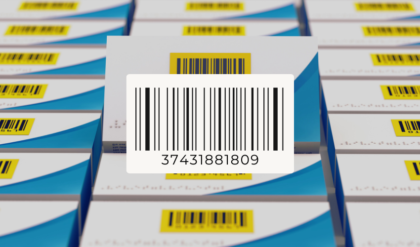Introduction to B88221141
The B88221141 identifier defines a current high value solution to track items to identify their authenticity and compliance to regulation authority standards in different industries with flexibility easily from one environment to the other for the industry needs.
That is why the B88221141 identifier is so important and universal thanks to its adaptability in industries including manufacturing, logistics, pharmaceuticals, automotive and others. Whether used for inventory tracking, for compliance with body corporate rules, or for managing product life cycle, the identifier provides organizations with what those need for enhancing operations and therefore reducing cost.
This paper calls for an appreciation of B88221141, the various applications, advantages, and disadvantages of the use of B88221141, as well as what the future holds for industry identifiers.
What is B88221141?

B88221141 is a unique identifier assigned to products, components, or processes to ensure seamless tracking, management, and integration into standardized systems. Identifiers like B88221141 are vital in industries that require robust tracking mechanisms for compliance, inventory management, and accountability. Its structure, though seemingly random, adheres to industry-specific coding standards, which makes it universally recognizable across sectors.
The number is not just a random string of characters; it contains valuable information that allows industry professionals to decode its meaning. Each segment of the identifier often correlates to a product type, batch number, production date, or even specific production site information. This granularity ensures that products can be tracked back to their origin with precision.
B88221141 is not just another barcode or serial number. It has grown in use and function, becoming synonymous with efficient industry operations, and helping businesses manage their products and processes in real-time.
Understanding the Importance of Industry Identifiers
Classification numbers such as B88221141 are very useful in the current world that is characterized by globalization and the increase in industrial growth. They offer a specialized and specific technique for describing and locating products, materials, and other valuable property in the supply chain. Since organizations are spreading over continents and sectors they are much more interdependent than before and this underlines the importance of elaborating common identification systems.
This is an identifier for each product or each component; and it works as a digital passport. It provides enhanced data about the item including the source, the date when it was produced, its batch number and the movement of the item. This not only helps companies to meet industry standards but also helps increase transparency so that companies can make better decisions regarding their operations.
To businesses in particular sectors such as the manufacture of pharmaceutical goods and food and beverages, B88221141 gives the tracking information that organizations need to deal with recall problems and guarantee the quality of their goods. Relatively, in industries such as manufacturing and logistics, it enhances the flow of stock, making sure that organizations have the appropriate products placed at appropriate points at the best time.
Key Features of B88221141
The B88221141 identifier offers several key features that set it apart from other identification systems. These features make it a flexible and adaptable solution for various industries:
Global Standardization
To satisfy various international requirements in identification, B88221141 is created to be used universally. Such an approach was deployed to facilitate the adoption of the identifier in value chains irrespective of the geographical location of the business. In format compliance with global standards, B88221141 avoids the creation of confusion as well as ineffectiveness prevalent in twin ID systems.
Flexibility Across Sectors
B88221141 was developed for usage in various industries, and it is represented in automotive, pharmaceutical, and chemical industries, electronics, and the food-processing industry. Consequently, it can satisfy the detailed requirements of each sector, including the identification of intricate parts in automotive industries and determination of path of crucial materials in pharmaceutical industries.
Real-Time Monitoring and Traceability
If connected with third-party tools, for example, RFID, or IoT gadgets, B88221141 may turn into an actual identification tag through which one can monitor the movement of products throughout the supply chain in real-time. This capability is especially important to organizations that have to be very strategic with what they do and how they do it. Real-time monitoring also helps businesses to make quick responses in case of break down or delays and helps them to effectively locate and eliminate bottlenecks.
Integration with Existing Systems
B88221141 interfaces with the current ERP systems, WMS, and other BMSs (Business Management Systems) as well. This integration capability makes it possible for the various businesses to adopt the B88221141 without having to undergo thorough and costly changes that disrupt the normal running of the organizations. The identifier can be connected with the legacy, so companies can retain their old systems but get all the benefits of B88221141.
Enhanced Security
The identifier can also be coupled with various sleek encryption technologies for safeguard of data. This is especially important in industries that deal with sensitive products which have been known to get counterfeited or tampered with including pharma’s and electronics. What makes B88221141 is that through its businesses will be able to control their products and ensure that only genuine products are produced in the market.
Use Cases of B88221141
The adaptability of B88221141 allows it to be used in various industries, providing benefits tailored to the specific requirements of each sector. Below are some notable use cases where the identifier is making a significant impact:
Automotive Industry
The automotive industry, for instance, depends on a web of suppliers to obtain thousands of components used to assemble a car. It is important to track a part as soon as it is procured all the way to when it is installed to both a company’s organizational effectiveness and the fulfillment of safety requirements.
B88221141 enables manufacturers to:
- Track components through every stage of the production process.
- Identify the origin of parts in case of recalls.
- Monitor supply chain movements in real time to reduce delays and inefficiencies.
Pharmaceuticals
Health authorities have set standards that these players must meet to bring new drug to the market. Even a small failure in the traceability can lead to damaging consequences, such as fines and code of conducts violation, as well as the danger to the patient’s life.
B88221141 provides the level of traceability required to:
- Monitor drug batches from production through distribution.
- Identify and recall faulty or contaminated products quickly.
- Ensure compliance with global regulatory requirements, such as those set by the FDA and EMA.
Logistics and Supply Chain Management
In logistics, a matter of tracking comprises the management of inventory, shipments, and deliveries. With B88221141, logistics providers can:
- Optimize warehouse management by automating inventory tracking.
- Ensure accurate and timely delivery of products.
- Reduce human errors in product handling and documentation.
Food and Beverage Industry
From the context of food and beverages, it is always important for businesses to retain quality and safety of consumable products. B88221141 helps ensure that food products are traceable from farm to table, allowing companies to:
- Quickly identify the source of contamination or quality issues.
- Manage product recalls efficiently.
- Provide transparency to consumers regarding the origin and handling of their food.
Electronics and Technology
The electronics industry has a necessity for the important tracking of components, especially for those industrial fields like telecommunications and aviation, with any tainted components are capable of producing severe loss. B88221141 enables companies to:
- Trace each component throughout its lifecycle.
- Ensure that counterfeit products do not enter the supply chain.
- Monitor and manage product warranties by tracking manufacturing dates and serial numbers.
Benefits of B88221141
The B88221141 identifier brings a wide range of benefits to industries that require robust tracking, monitoring, and compliance mechanisms. Below are the key benefits of the B88221141 identifier:
Enhanced Efficiency and Productivity
B88221141 reduces the need for manual data entry and human intervention in tracking products. This automation leads to improved efficiency and allows employees to focus on more value-added tasks. Whether used in warehouses or manufacturing floors, the identifier speeds up processes and reduces the likelihood of errors.
Improved Traceability
B88221141 equally demands total product tracking right from the input materials to the final output. This is particularly important in sectors that require quality assurance and safety as some of the core values in business include the pharmaceutical and the food industry. Using the identifier, compliance with the existing legislation and the possibility of performing a fast recall of each product when necessary, is achieved.
Compliance with Industry Regulations
It is widely observed that industries like chemical, pharmaceutical, food processing, etc., function legally as well as safely, only after following several regulatory compliances. B88221141 makes this easy to achieve through proper record keeping of each product passing through the supply chain and thus full compliance with the demands of the law.
Cost Reduction
In ways that minimize costs and errors, B88221141 helps in automating tracking processes to effectively improve the flow or operation. It also allows for improved inventory management since there is no way that stock will accumulate to an unhealthy level or conversely run out in the process. During a recall occasion, the identifier is in a position to make sure only the certain batches are pulled back hence significantly lessening the cost implications.
Scalability
B88221141 is adaptable and can easily expand to allow businesses to integrate it into their growing or evolving operations. It is easily integrated into the new product lines, markets, or supply chain, thus making it a prominent solution for tomorrow’s business needs.
Real-Time Data and Analytics
The identifier produces data in real time for monitoring, reporting and / or improving the business process. Through analyzing of this data businesses can easily be able to foresee issues such as bottlenecks in various aspects of the business for better effective decision making hence a better bottom line.
Challenges and Limitations of B88221141
Despite its many benefits, B88221141 faces certain challenges:
Integration Complexity
B88221141 becomes challenging to implement in the complicated supply chain or large business entities with traditional structures. The change may involve major expenditure to acquire new tools, applications and conducting certification programs for the employees.
Lack of Standardization
While B88221141 follows global standards, different industries or regions may have their own identification systems. This lack of universal standardization can lead to compatibility issues, especially for multinational companies.
Data Management and Security
Since B88221141 produces huge amounts of data for business use, it is important that these companies develop sound data management systems that will not lead to more of such inconsistencies. Secondly, data integrity also must be ensured especially in sectors where there are usually compromised and fake products.
Initial Implementation Costs
The upfront costs of implementing B88221141, especially for smaller companies, can be high. This includes purchasing hardware, integrating software, and training employees, which can strain smaller budgets.
Future of Industry Identifiers
Several trends and advance technologies define the future of industry identifiers such as B88221141 in the following ways. More and more industries become dependent on digital technologies and/or international markets, the importance of identifiers as tools for promoting clarity, stability, and effectiveness will only grow further. Both the changing requirements of businesses where identifiers are applied and the emerging trends in the development of systems that determine those demands will put pressure on identifiers and expand their applicability toward the concepts of intelligence integration.
Conclusion
The B88221141 identifier has become a useful identifier in the modern industrial world since it provides higher identification capability, conformity, and effectiveness across the sectors. It can therefore grow with the firm and accept other emerging technologies thus making it a core tool in industrial operations. But there are difficulties connected with integration issues, standardization problems, and data management that have to be solved to reveal its potential.
In the future, B88221141 will focus on innovations such as blockchain, IoT, and AI along with an increasing concern with globalization and standards and sustainability concerns. Not only that, but it will also spread into new fields and change how the concept of supply chain operates and becomes much smarter, safer, and greener.
Thus, B88221141 is not merely a code or a label but it is the future of industrialization of our world. Subsequently, as business approach the digital age and transparency becomes the center focus, B88221141will remain paramount in assisting organizations to manage the contemporary industrial environment and enhance their efficiency and sustainability.





